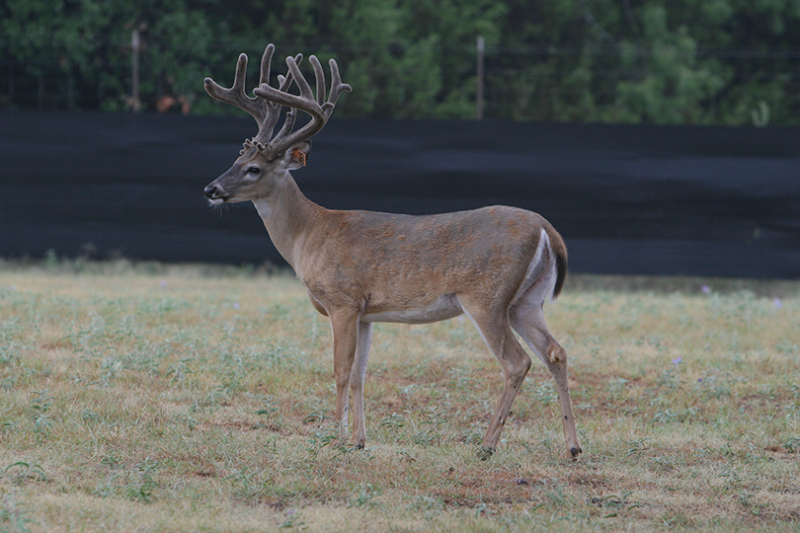Three Texas universities are among the groups receiving funds from the U.S. Department of Agriculture’s (USDA) Animal and Plant Health Inspection Service (APHIS) to develop and implement chronic wasting disease (CWD) management and response activities in wild and farmed cervids.
“Chronic wasting disease continues to present a risk to deer, elk, moose and other cervids,” said Jenny Lester Moffitt, USDA undersecretary for Marketing and Regulatory Programs. “These collaborative efforts between and state and Tribal partners help find and implement new solutions for safeguarding U.S. agriculture and natural resources.”
CWD is an infectious, degenerative disease of cervids that causes brain cells to die, ultimately leading to death. The disease, APHIS officials say, has spread widely and the limited number of tools, as well as their effectiveness, impacts the ability to effectively control the disease.
New tools and approaches will enable improved management of wild and farmed cervids at risk for the disease, according to APHIS.
Texas Tech University, Texas A&M University and the University of Texas each received funds.
Texas Tech received $249,665 to study the validation of a minimally invasive, rapid and sensitive biomarker-based test for ante-mortem detection of prion infection in farmed cervids.
Texas A&M received $249,443 to study the next generation predictive genetics for differential susceptibility to CWD in farmed white-tailed deer and elk.
The University of Texas received $249,831 for identification and characterization of CWD contaminated meats.
An additional study will be conducted in Texas by Auburn University. The university received $103,976 to study CWD surveillance of captive deer facilities in Texas using a model-informed adaptive management approach.
APHIS based its funding allocations on the following priorities, established collaboratively with state agricultural and wildlife representatives, Tribal officials and the cervid industry:
- Improving CWD management of affected farmed herds and wild cervid populations;
- Improving CWD management of affected areas or premises;
- Conducting additional research on the use of certain sensitive testing technology, known as amplification assays, for CWD;
- Conducting additional research on predictive genetics; and
- Developing and/or delivering educational outreach materials or programs.
APHIS gave priority to State and Tribal governments that have already detected CWD or border CWD endemic areas; and have either implemented monitoring and surveillance programs or propose to do so.
For more details on the individual projects, visit:
2023 Farmed Cervid Spending Plan
2023 Wild Cervid Spending Plan
2023 Tribal National Wild Cervid Spending Plan

